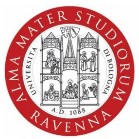To get an overall impression of this succesfully completed Erasmus+ project, click here: European Citizenship, Heritage, Culture
Introduction
Citizenship is nowadays a topic discussed in all domains of society. This project aims to contribute to more shared knowledge and good practices through the development of a joint study program based on the interconnectivity of citizenship, heritage, and entrepreneurship.
The outcomes must lead to new labour market opportunities and the development of new business models for those active in the domain of citizenship and heritage. It’s for the first time – in this sense the partners are pioneers – they will work on such a large scale together on an integration of these three topics. The aim of this project is to assemble the most experienced educational institutes in the EU and their students in the field of entrepreneurship, heritage, and citizenship.
To quote Jody Jensen, director of the Institute for Social & European Studies (ISES), Köszeg, Hungary: “Until now there is not such a thing as a collaboration between universities in the fields of European Culture, (in)tangible) Heritage and Citizenship. No field can be studied in isolation and requires an inter-disciplinary and trans-disciplinary approach. An academic course that brings together the business skills from the regular MBA programs with knowledge from culture, European studies, tangible and intangible heritage studies and citizenship education needs to be developed.”
Growing importance of culture in EU documents
The connection with EU policies and the current identity debate needs sharing of teaching practices, and exchange of good practices around the relation between (intangible) heritage and citizenship and management of these processes in the wider cultural sector. There is a direct historical line traceable of the importance of cultural heritage in these documents: Treaty of Maastricht (1992, Article 3, p); Treaty of Amsterdam (1997, Article 128); Communication from the Commission to the European Parliament, the Council, etc on a European agenda for culture in a globalizing world (COM(2007) 242 final, 10-05-2007); Treaty of Lisbon (1-12-2009: Title XIII, Culture, Article 167; Communication from the Commission to the European Parliament, the Council, etc, “Towards an integrated approach to cultural heritage for Europe” (Brussels 22.7.2014, COM (2014) 477 final). In these documents we see the growing importance of heritage.
Short courses throughout Europe
In order to reach this aim 5 leading institutes across Europe joined forces to develop an interdisciplinary extracurricular curriculum of short (5 days) courses in which European citizenship will be explored. This will lead to new insights for contextualization of our common European (in)tangible heritage. To exploit these insights, new entrepreneurial skills for the sector will also be addressed. The cultural institutions need to be managed in an innovative manner to bring these new insights to a broad public. The next step will be a study of the management of integrated policies and practices in the field of heritage, culture and citizenship and the connection with social entrepreneurship.
The overall impact envisaged is to contribute, during turbulent times in Europe, to the current discussion about European Identity and European Citizenship. It took the EC motto of the Social Summit in Gothenburg as its overarching intentions: “Strengthening European Identity through Education & Culture” and added the sentence “and how to manage it” as the expression of the conviction of the partners that entrepreneurial knowledge and tools are necessary to come to a promising future for the Commission’s intention. Besides spreading this notion, the ECHC project helps to develop intercultural and critical thinking about the EU project and the values it stands for. It supports the social engagement of the PMG partners and its students and promotes intercultural and civic competences of students as well as the connectivity of themes, persons (teachers and students) and project partners.
To get an overall impression of this succesfully completed Erasmus+ project, click here: European Citizenship, Heritage, Culture










